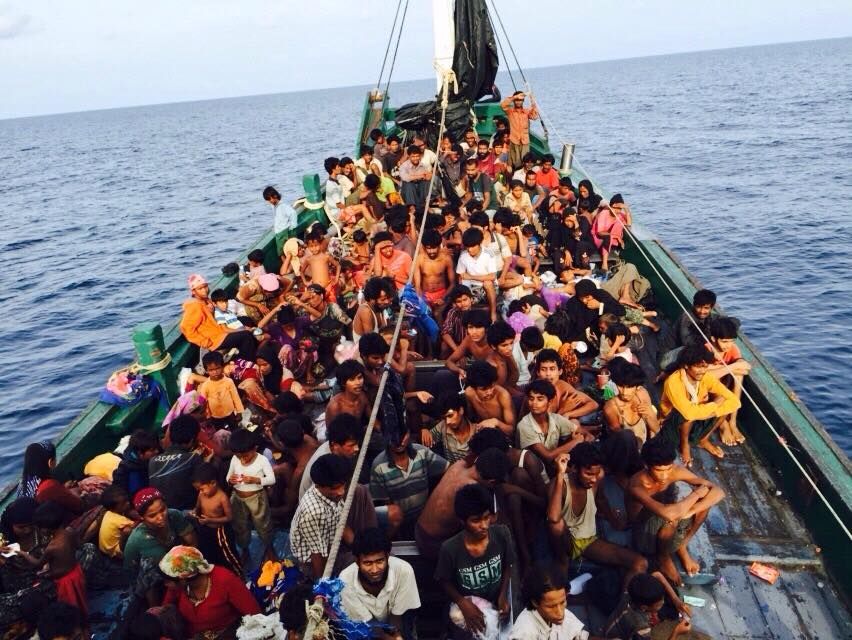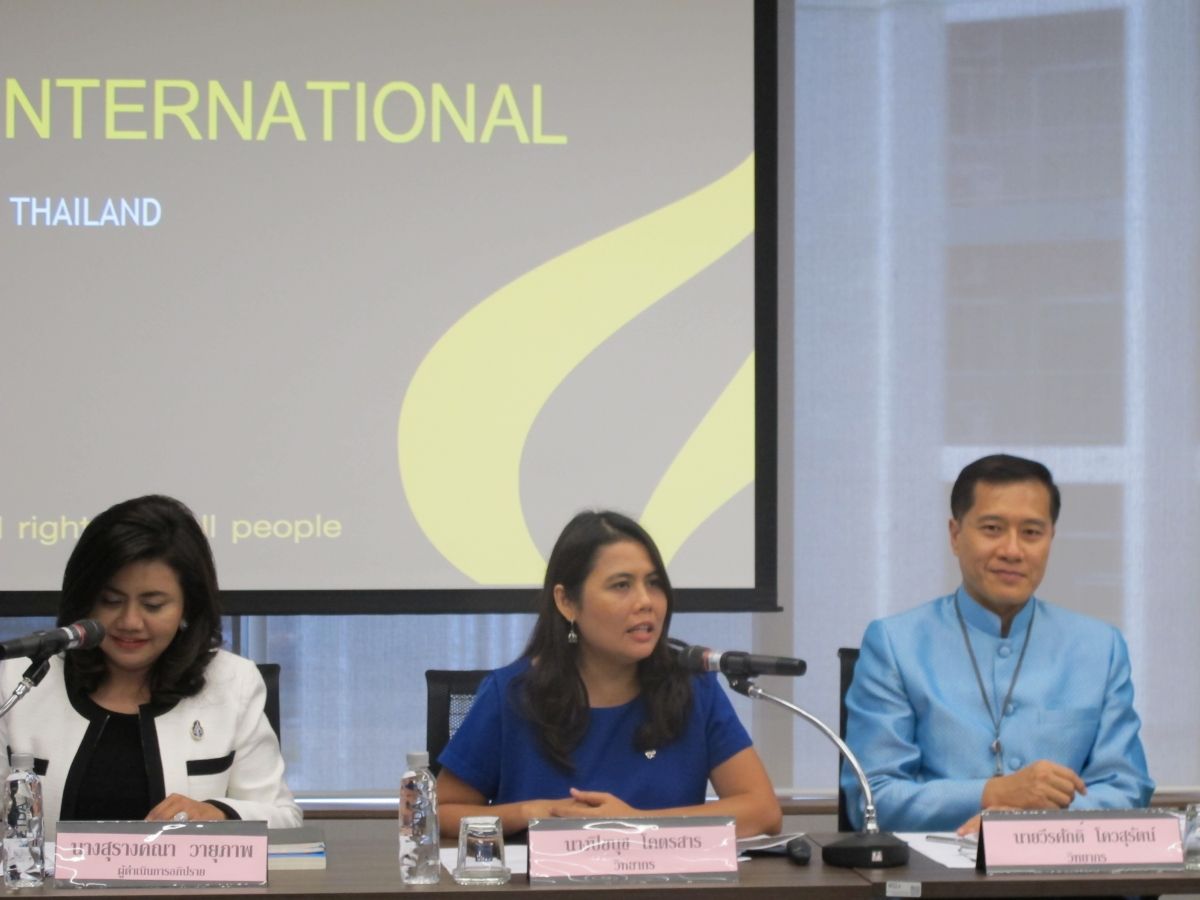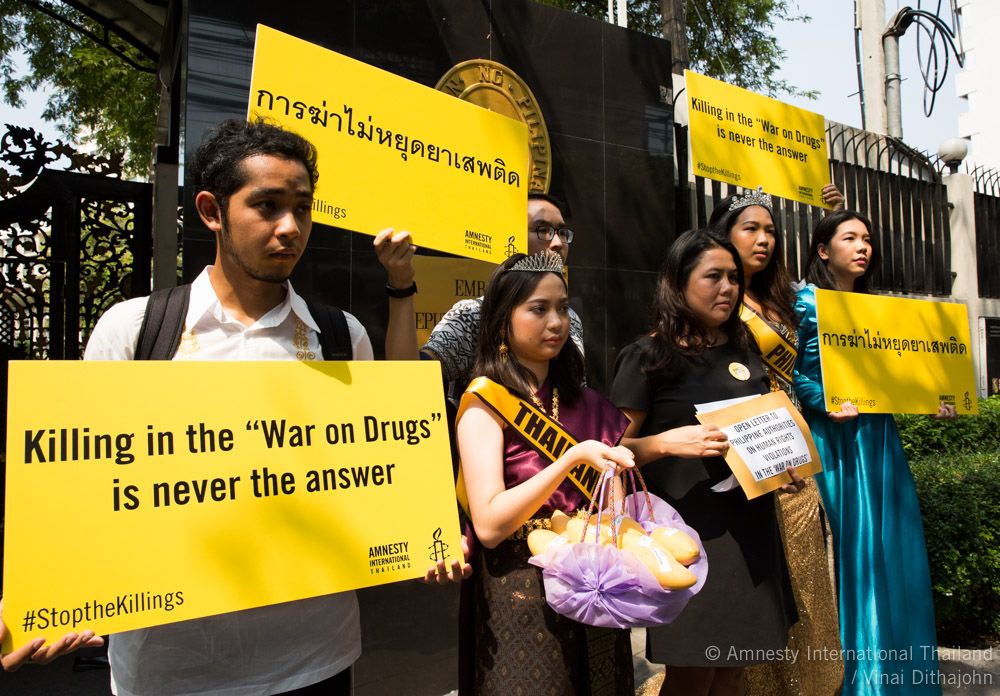Thailand levying politically motivated charges against children under 18 years old
20 May 2021
Amnesty International Thailand
Since the first wave of Covid-19 pandemic in 2020, Thailand has still been ruled under the State of Emergency across the country. Powers have been centralized and executed arbitrarily to curb the spread of Covid-19 infection. Some rights and freedoms have been deprived to ensure survival and to prevent the pandemic. Nevertheless, such restrictions have to be made proportionately, necessarily and based on reasonable and acceptable ground. In addition, it must be equally and reasonably imposed for a definite period of time.

Nevertheless, mounting evidence attests to a sharp increase of arrests and prosecutions against dissenters, particularly those participating in the previous political assemblies. They have come out to demand justice for the oppressed, particularly the marginalized groups in society. They call on the government and various institutions in the country to carry out a reform of the power structure to ensure transparency and accountability to the public while respecting human rights andthe supremacy of law reforming. According to the Thai Lawyers for Human Rights (TLHR), at least 650 individuals, including children under 18 years old, have been prosecuted for expressing their political views in over 300 cases.
From our documentation and observation of the exercise of the right to freedom of expression and peaceful assembly, at least 41 children under 18 years old have been charged in 37 cases for being involved with the public assemblies and the expression of their views. Of this, 5 individuals in 6 cases, including a 14-year-old child, are facing a lese majeste charge and other serious criminal offences, including being members of a secret society or criminal association, resisting and obstructing officers. Other offences which directly restrict the right to public assembly, including offences against the Criminal Code, the Public Assembly Act, the Emergency Decree and its regulations are also imposed against them. For the first time ever, children participating in public assemblies are slapped with an offence against Section 112 or lese majeste.
In addition to the uptick of prosecution against children and youth, Amnesty International has found that most children and youth charged for participating in public assemblies have often been arrested without a warrant. The law enforcement officials tend to use force to put them under arrest at the protesting venues and hold them in custody in a detention facility not prescribed by the Criminal Procedure Code. As a result, the children and youth have been denied the right to have access to their parents and legal counsels and prompt medical services.
The legal action and the use of force to arrest and hold them in custody have taken their toll on both the children and their families. They have to be held accountable through a criminal justice proceeding and deprived of the chance to remedy from concerned agencies. Amnesty International, therefore, calls on the government of Thailand as a state party to the International Covenant on Civil and Political Rights and the Convention on the Rights of the Child to uphold the right to freedom of expression and peaceful assembly, which prescribed in Sections 34 and 44 of the Constitution of the Kingdom of Thailand 2017 as follows;
-
Stop prosecuting children and youth who have exercised their right to freedom of expression and peaceful assembly on politically motivated charges. The state should decriminalize and avoid holding children and youth accountable through the criminal justice proceeding
-
Stop using violence against children and youth while they are present and vacated the assembly sites. The state must ensure that the arrests and detentions are carried out in compliance with the law and must be done necessarily and proportionately. The children and youth who have been illegally abused through the treatment must have a recourse to seek justice and remedy from concerned authorities.
-
The state must promptly implement policies to protect children and youth who have expressed themselves or participated in a peaceful assembly. Training must be offered to raise the awareness of the officers about the rights of the children, including the right to participate in political affairs, the right to be heard and the right to participate in a peaceful assembly. Furthermore, there must be a follow-up and review to ensure the guidelines are implemented genuinely in compliance with international standards.





Background
Peaceful assemblies have taken place in Thailand from 2020 until the present. The protesters have demanded that the government have a rewrite the Constitution with public participation, stop harassing the people, and reform the monarchy. The Constitutional Court ruling has triggered the wave of protests to disband the Future Forward Party, alleging that the party's leader, Thanathorn Juangroongruangkit, has unlawfully lent his money to the party. It has given rise to demonstrations in universities and schools throughout the country. Students in secondary schools were flashing their three fingers during the national anthem assembly and wearing white bows against dictatorship, etc. As a result, youth who have dared to express themselves symbolically have been harassed, reprimanded, and even punished by the school administration, parents, and police.
Their protests have later expanded and changed from procession to sit-in in Bangkok. It marks the largest demonstration in six years. The protesters continue to hold on to their three original demands. Although the Covid-19 pandemic is increasingly transmissible and the impact of the enforcement of the Emergency Decree has operated, the number of protesters has not shrunk. On the contrary, it has spread to at least 44 provinces throughout Thailand.
Meanwhile, the Thai government has tightened restrictions on public assemblies through the regulations issued under the Emergency Decree and other criminal provisions. Public assemblies were forcefully dispersed while the Severe State of Emergency was imposed, and it has led to a series of arrests and detentions. And for the first time, a child under 18 years old was held liable for a criminal offence for their political expression. At least 41 children are currently prosecuted for participating in public assemblies, being present, or expressing their political views. Several have been arrested without warrants and have been subject to physical abuse during the arrest and detention. They have been charged for severe criminal offences, including six children slapped with a lese majeste charge. The cases have been reported against them by three members of the public.
Given such a situation, Amnesty Internationalis gravely concerned that the Thai government has been acting without heeding to the child's rights upheld by the Convention on the Rights of the Child to which Thailand has ratified on 12 February 1992 and issued domestic laws in its compliance. The CRC essentially provides that the government ensure its treatment of all children is done without discrimination for race, nationality, political opinion, or membership in a particular social group. All children must afford equal rights as prescribed in the CRC. The Thai government must take into account the child's best interest in its implementation regarding the law and the protection of the rights of all children and youth under 18 years old.




